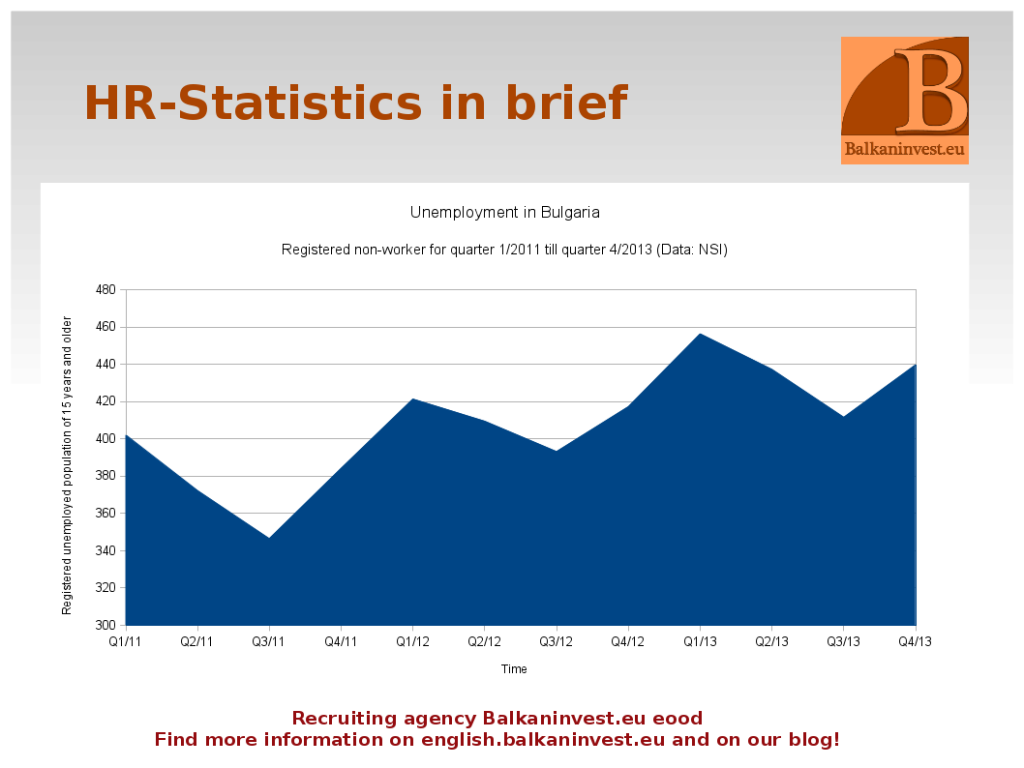
Labor migration in the EU: Bulgaria between brain drain and brain gain
The free movement of people within the European Union has changed the labor markets and allows citizens to move to where they see the best opportunities for work. But for countries like Bulgaria, this mobility poses a double challenge: brain drain, the loss of skilled labor, and the potential for brain gain, the return of talent and knowledge. Since joining the EU in 2007, labor migration has had a profound impact on the country and is one of the biggest socio-economic challenges.

The brain drain phenomenon in Bulgaria
Bulgaria is one of the regions most affected by the brain drain worldwide. Since 1990, the country has lost around 22 percent of its population, and forecasts point to a further decline of 23 percent by 2050. The population has shrunk by over one million people since 1989, from 7.9 million to 6.4 million in 2024. This decline is also reflected in the annual population change rate: as shown in chart 1, this rate has been negative since the mid-1980s (1985: -0.08%) and reached its lowest point at -1.21% around 1993/1994. In 2024 it will still be -0.61%, for 2025 a rate of between -0.6% and -0.83% is forecast, and by 2050 it will remain negative at -0.89%. This development is largely driven by low birth rates, high mortality rates and, above all, emigration.

Causes of Migration: The Pull of the West and Internal Problems
The main causes of emigration lie in the significant economic disparities within the EU. Bulgarians leave their country in search of higher wages, better job security, and improved living conditions in Western Europe. Although the gross domestic product (GDP) per capita has increased from 1,625 USD in the year 2000 to 17,588 USD in 2024 and is projected to reach 24,894 USD by 2030, the absolute level remains low compared to the EU average—making emigration still an attractive option.

The possibility of earning twice as much for the same work, or even getting more for less qualified work, is a strong incentive. In addition, there are internal problems such as corruption, weak public services, a lack of meritocracy, a poor work-life balance, a lack of professional development and outdated workplace cultures that encourage young people to leave.
Effects: Shortage of skilled workers and burden on the economy
The effects of the brain drain on Bulgaria are serious: it is leading to a decline in human capital, slowing economic growth and reducing productivity and tax revenues. Certain sectors have been hit particularly hard: the healthcare sector has been severely affected, with the number of doctors falling from 35,000 to 28,000 by 2017. Since 2007, over 15,000 Bulgarian doctors and 20,000 nurses have left the country, as a doctor in Germany can earn five to six times as much as a Bulgarian colleague. The IT sector is also suffering from the loss of qualified workers, who are migrating to countries with better salaries and career opportunities. Overall, the Bulgarian economy is predicted to face a shortage of around 400,000 qualified workers by 2017. This will lead to a shortage of skilled workers in construction, healthcare, education and engineering.
Profiteer Germany: The “transfer of wealth”
Germany benefits greatly from this development: it is the preferred destination country for Bulgarian migrants. In 2024, there were 371,128 Bulgarian citizens living in Germany alone, followed by Spain (112,834) and the Netherlands (60,494), which clearly shows the distribution in the EU.

Many of them are better educated than average. Germany has a total of 8.9 million immigrant workers. Immigration from Eastern European countries has slowed down demographic change in Germany and helped to secure a supply of skilled workers. Without doctors from Eastern Europe, there would be no medical care at all in certain regions of Germany. This development is often referred to as a “transfer of wealth”, as countries such as Germany receive workers in whose training they did not have to invest.
The potential of brain gain for Bulgaria
Despite the challenges, labor migration also offers opportunities for Bulgaria, particularly through brain gain. This can take place in various ways: through the return of Bulgarians who have acquired new skills and knowledge abroad, or through the transfer of knowledge and capital through the Bulgarian diaspora.
In fact, there is an increasing tendency to return to Bulgaria, which has increased especially during the COVID-19 pandemic. Data from the National Statistical Institute (NSI) confirms a steady increase in returnees over the last decade. Bulgaria has a high proportion of migrants who are nationals, which indicates significant return mobility. These returnees can bring new knowledge, skills and innovations to the country, build networks and establish international contacts. Remittances are an important aspect of capital transfers: As shown in Figure 5, between around USD 115 million (in 2015) and over USD 420 million (in 2024) flowed annually from Bulgarian migrants to Bulgaria between 2014 and 2024. This shows a significant increase, with the highest value in 2024.

Examples of successful returnees or initiatives that promote brain gain are crucial.
Strategies to promote brain gain
In order to minimize brain drain and fully exploit the potential of brain gain, targeted measures are required at various levels.
The Bulgarian government has begun to develop strategies aimed at the return of its citizens. The National Migration Strategy of the Republic of Bulgaria (2021-2025) provides for programs to support returnees and promotes campaigns to encourage return. These include financial incentives, job search and integration support and the promotion of business start-ups by returnees. A key element is also the granting of Bulgarian citizenship based on descent in order to strengthen ties with the diaspora.
It is also important to strengthen ties with the Bulgarian diaspora in order to promote knowledge exchange and foreign investment. On a broad level, working conditions and salaries must be improved domestically. Investment in education and research as well as the fight against corruption and strengthening the rule of law are also essential to make the country more attractive. EU cohesion policy plays an important role here in reducing economic and social disparities between the regions.
Conclusion and outlook
Bulgaria faces the complex task of stemming the ongoing brain drain while at the same time harnessing the potential of return migration. The phenomenon of brain drain is directly attributable to the existing socio-economic imbalances within the EU, and although the EU institutions have introduced mechanisms to reduce these disparities, these have so far only been partially effective.
A holistic approach that includes both measures to stem the brain drain and to promote brain gain is crucial. This requires cooperation between politics, business, the education system and civil society in Bulgaria as well as a dialog between the countries of immigration and emigration. Although the brain drain of doctors is not a pressing problem at present, innovative funding approaches could be considered in the future if shortages in key professions occur.
Return mobility could be a possible solution to Bulgaria’s demographic crisis, although it has decreased since 2020. With targeted policy interventions, Bulgaria can further improve the benefits of migration and reduce the risks. The country has the potential to minimize the brain drain and benefit from the brain gain if it succeeds in creating attractive prospects at home and strengthening ties with its expatriate population.






